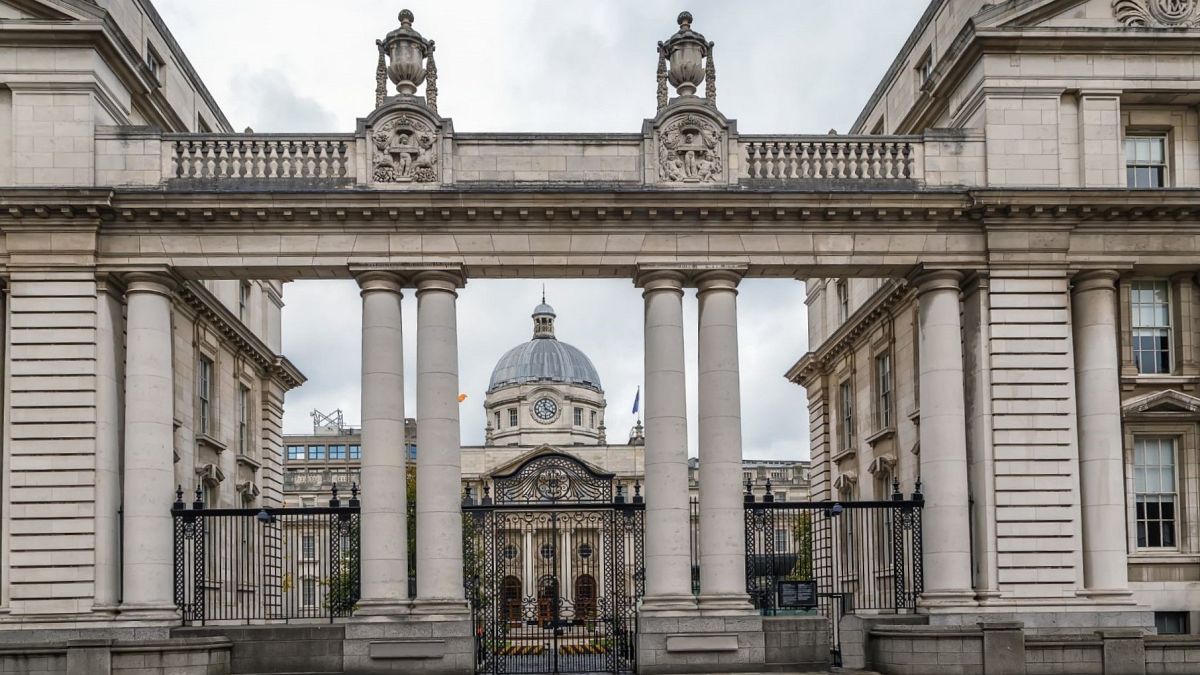The Irish government’s fiscal watchdog has urged a cautious approach to budgeting ahead of the pivotal announcement scheduled for October.
The Irish Fiscal Advisory Council (IFAC) has raised alarms over the government’s management of public finances, claiming it is placing “unnecessary strain” on the nation’s economy.
IFAC warns that past overspending tendencies are in danger of being repeated, reminiscent of the austerity measures enforced during the financial crisis of 2008-2009.
Specific concern arises from what the IFAC describes as repeated breaches of the government’s own fiscal spending rules. Established in 2021, this rule restricts annual spending growth to 5%, barring increases financed through tax hikes.
In a move reflecting increased tax revenues, the Irish government previously presented a budget of €8.3 billion in July, which resulted in an expenditure increase of 6.9%. The IFAC cautioned that pouring more money into an economy experiencing record employment heights could exacerbate ongoing issues with rising prices and supply constraints.
Addressing Inflationary Concerns
The IFAC’s warning emphasizes that injecting additional funds into the economy could lead to increased consumer demand, consequently pushing up inflation. It estimates that breaches of the spending guidelines since 2022 may result in consumer prices being 1.9% higher in 2025, translating to an approximate €1,000 increase in annual expenses for the average household.
Robust employment trends are also feeding inflationary pressures. According to John D. FitzGerald, a professor of economics at Trinity College Dublin, “A key indicator of the economy operating beyond its potential lies in the current labor market dynamics.” In fact, employment has surged by 2.7% year-on-year in the first half of 2024, with most new jobs filled by returning emigrants and international workers stepping into high-paying positions.
This rise in employment yields greater disposable income for individuals, thus fueling demand and driving prices higher. In response, companies are keen on hiring more staff, which can push wages upwards, further fuelling inflation.
“The immediate solution is for the government to consider either tax increases or spending cuts to temper employment growth,” Professor FitzGerald suggested.
Weighing the Surplus
Considering Ireland’s resilient economy, particularly its expected €8.6 billion surplus, the IFAC’s caution may seem overly negative. However, the watchdog warns that this surplus is precarious, heavily reliant on a handful of multinational corporations.
IFAC stated, “While the government touts a financial surplus, it is predominantly powered by taxes from a select few multinationals.” Without these windfalls, Ireland could tumble into significant deficit territory. If there’s a reversal in corporate tax revenues or a downturn in employment levels, the government might face tough decisions regarding its fiscal commitments.
As the imminent election looms, maintaining fiscal discipline may prove politically challenging. Despite economic progress, Ireland faces pressing infrastructure issues, particularly in housing and healthcare.
Ricardo Amaro, lead economist at Oxford Economics, notes, “With public demand for support and a challenging election on the horizon, it’s difficult for the government to entirely set aside surplus corporate tax revenues.” Nonetheless, he concurs with the IFAC’s warnings, emphasizing that corporate tax revenues are “concentrated and unpredictable.” He advocates for “targeted measures” to enhance infrastructure while mitigating inflationary risks, highlighting that the current fiscal rule is flexible enough to accommodate demands for investment in housing and infrastructure, provided there’s some restraint in other spending areas.
Photo credit & article inspired by: Euronews



